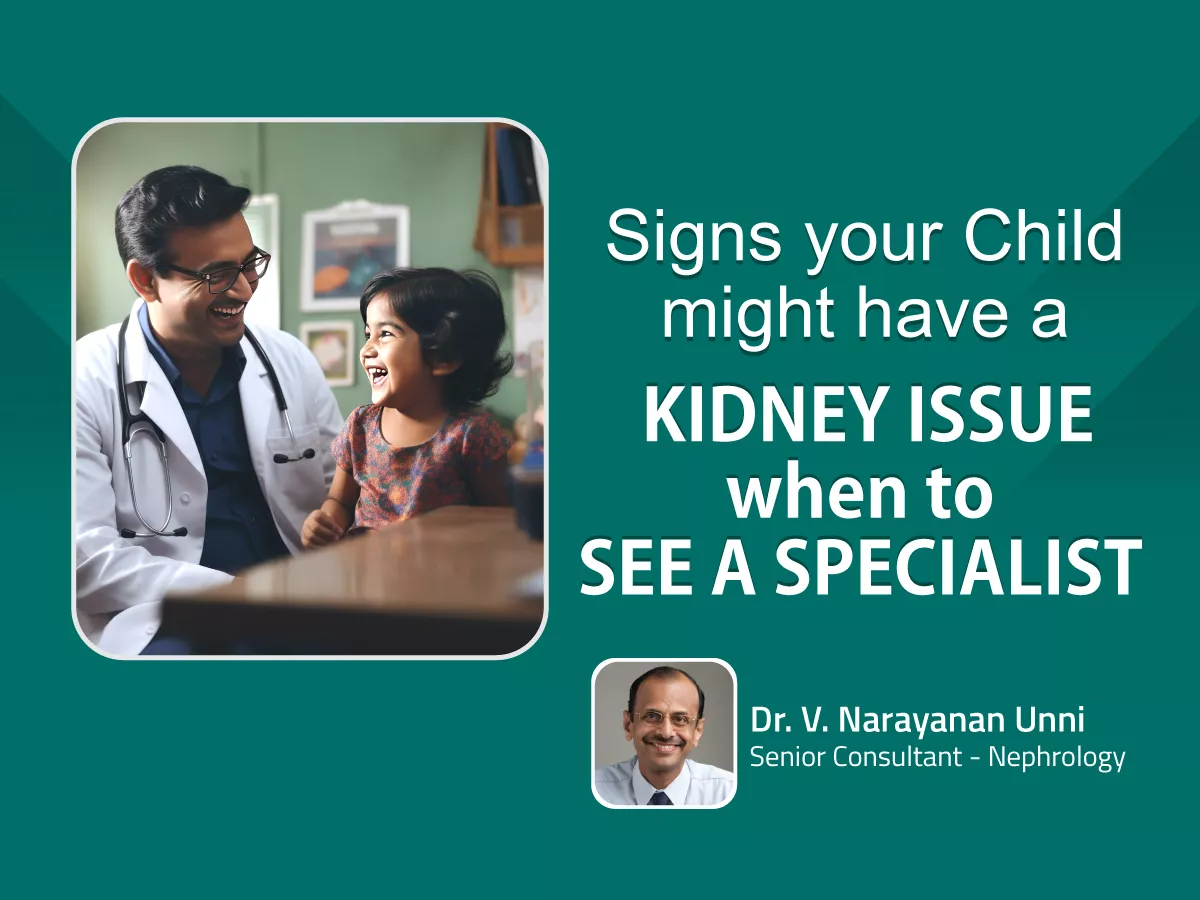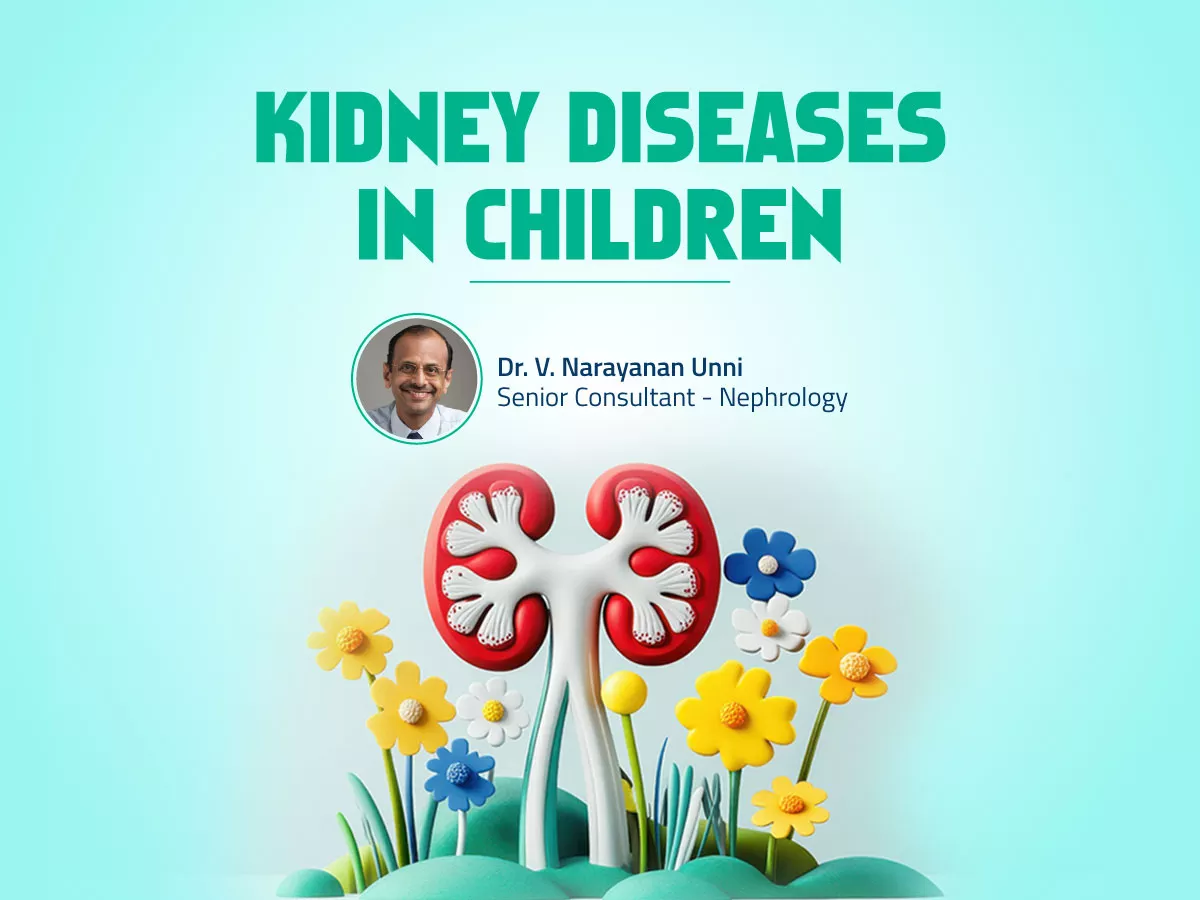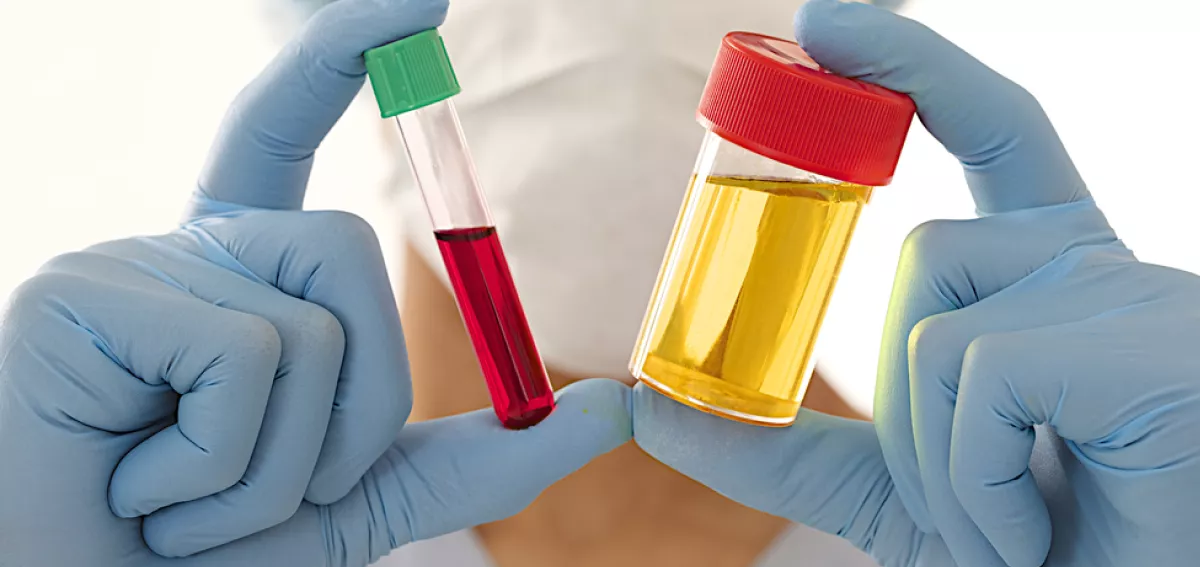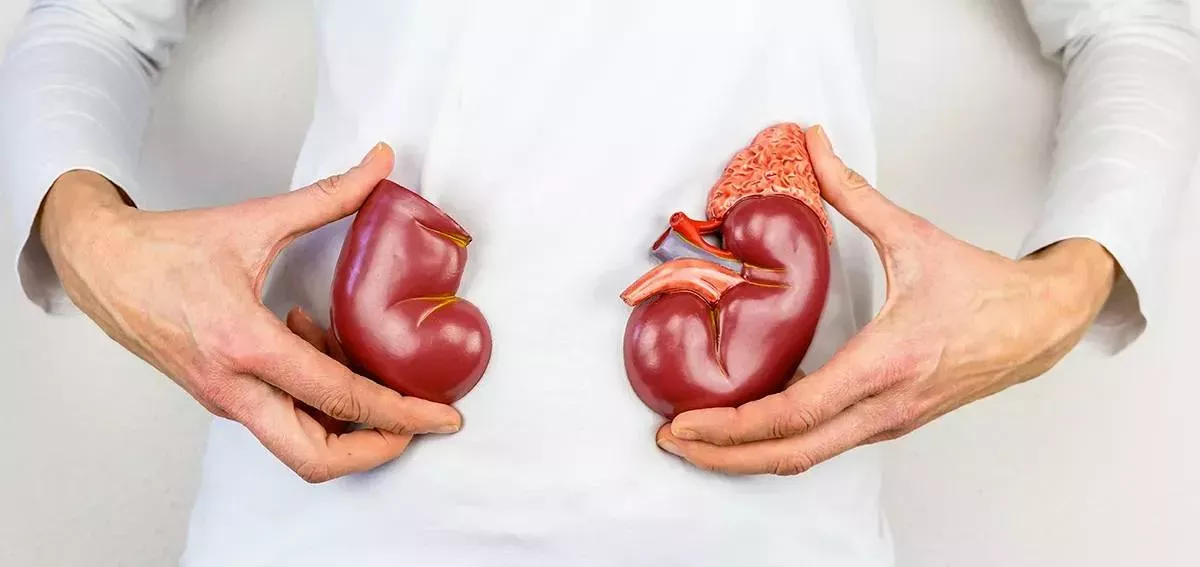Kidney health is crucial for overall well-being, in children. The kidneys are responsible for filtering waste products, from blood maintaining fluid balance, and ensuring proper blood pressure. While kidney issues in children are less common than in adults, early detection is essential to prevent complications. Understanding the warning signs of kidney problems can help parents take timely actions.
Understanding Kidney Issues in Children
Kidney problems in children can range from urinary infections to serious conditions such as chronic kidney disease (CKD). These may result from congenital abnormalities, infections, or other underlying health conditions. Prompt recognition and treatment can prevent long-term damage to these vital organs.
Signs Your Child Might Have a Kidney Issue
1. Changes in Urination
- Decreased Frequency: Reduced urination could indicate a problem with kidney function.
- Increased Frequency: Frequent urination, especially at night, might signal an urinary infections.
- Painful Urination: Complaints of pain or burning during urination may suggest a urinary tract infection (UTI).
- Blood in Urine: Pink, red, or brown urine is a potential sign of kidney or urinary tract problems.
2. Swelling
- Swelling on the face, hands, feet, or abdomen can result from fluid retention caused by improper kidney function.
3. High Blood Pressure
- Persistent high blood pressure in children could be linked to kidney disease, as the kidneys play a crucial role in regulating blood pressure.
4. Fatigue and Weakness
- Tiredness, lethargy, and difficulty concentrating may result from anemia or the accumulation of toxins due to reduced kidney function.
5. Poor Appetite and Growth
- A sudden loss of appetite or failure to gain weight and grow as expected can be signs of kidney problems, particularly in younger children.
6. Persistent Nausea and Vomiting
- Ongoing nausea and vomiting may indicate a buildup of waste products in the bloodstream, known as uremia.
7. Persistent Fever
- Recurrent fevers, occur with urinary tract infections.
8. Back or Side Pain
- Complaints of pain in the lower back or sides could be related to kidney infections or stones.
9. Foamy or Bubbly Urine
- Excessive foam in the urine may indicate protein leakage, which is a potential sign of kidney damage.
Common Problems in Children
1. Urinary Tract Infections (UTIs)
• Symptoms include painful urination, fever, and cloudy or foul-smelling urine.
• UTIs can lead to kidney failure if left untreated.
2. Nephrotic Syndrome
• Characterized by swelling, protein in the urine, and low protein levels in the blood.
• Requires specialized treatment and monitoring.
3. Congenital Abnormalities
• Conditions like vesicoureteral reflux (VUR) or obstructive uropathy may be present from birth.
• These require early diagnosis and management to prevent kidney damage.
4. Kidney Stones
• Seen in children due to dietary changes and dehydration.
• Symptoms include severe abdominal pain, blood in the urine, nausea and vomiting.
5. Chronic Kidney Disease (CKD)
• Gradual loss of kidney function, often due to congenital or hereditary conditions.
• Early intervention can slow progression and improve quality of life.
Diagnostic Steps for Kidney Problems
To identify the cause of kidney problems, doctors may recommend:
• Urine Tests: To check for blood, protein, or infection.
• Blood Tests: To evaluate kidney function and detect abnormalities.
• Imaging Tests: Ultrasound or CT scans to visualize the kidneys and urinary tract.
• Biopsy: In rare cases, a small sample of kidney tissue may be taken for further analysis.
Prevention and Care
While we cannot prevent all kidney diseases, certain measures can help to maintain kidney health in children:
• Hydration: Ensure your child drinks enough water daily.
• Healthy Diet: Encourage a balanced diet, low in salt and rich in fruits, vegetables, and whole grains.
• Hygiene: Teach proper bathroom hygiene to prevent UTIs.
• Routine Checkups: Regular visits to the paediatrician can help detect potential issues early.
Conclusion
Kidney problems in children are often treatable, especially when detected early. As a parent, staying vigilant about your child’s health and recognizing the warning signs of kidney diseases can make a significant difference. If you notice persistent symptoms or have concerns, don’t hesitate to consult a Nephrology specialist. Early diagnosis and treatment are key to ensuring your child’s long-term health and well-being.









